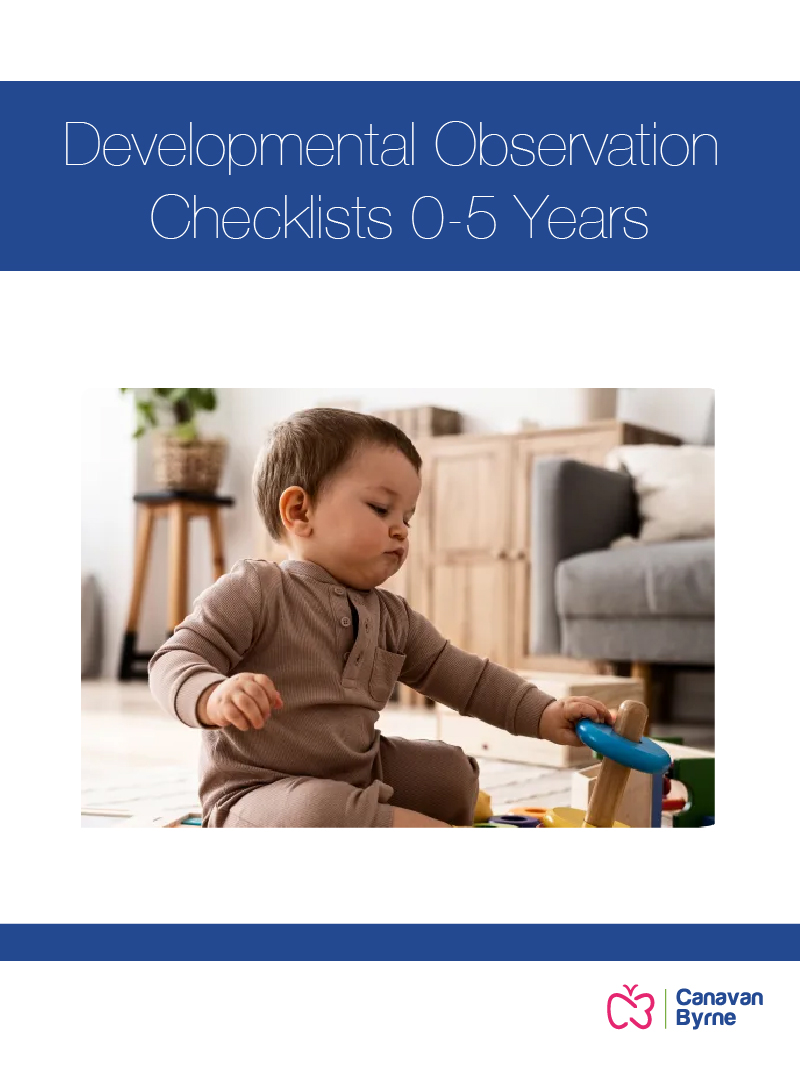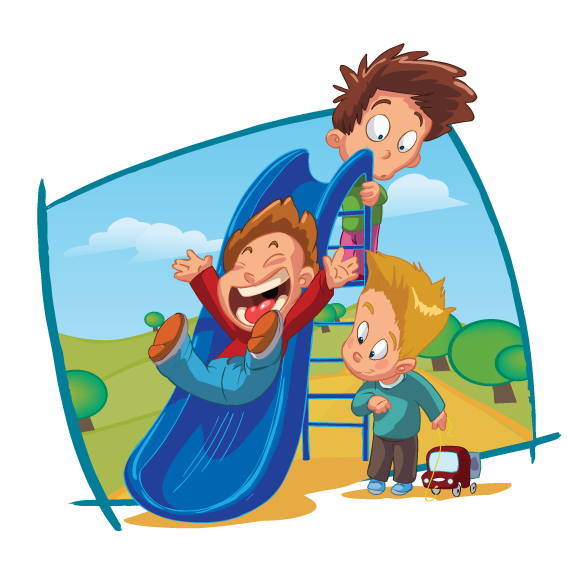You can help even a very young baby learn, grow and develop by doing simple everyday activities and interactions. Talk, read, sing, and play together every day. It’s about spending quality time with a baby/young child that is important. It is not always the length of time that you spend that is key to supporting children to progress developmentally and achieve their milestones.
While some milestones (like language) can be observed anytime during the day, other milestones will most likely be observed during targeted times of the day. For example: Motor skills are easy to observe during movement activities, dancing, and in the playground/outside time. Self-help skills during arrival, home time, toileting, and mealtimes.
See details of the new Developmental Observation Checklists pack
Social-emotional skills can be observed while children play or during small (paired/ 1:1) and large group activities with peers and adults. Cognitive skills can be spotted more easily with planned activities; for example, table top activities, puzzles, matching games, pretend play, problem solving activities and cause and effect games.
The newly updated Developmental Observation Checklists from Canavan Byrne aim to give educators all the necessary tools for services observing developmental milestones in children from birth to 5 years old. The pack is provided with two options; 'Full Day-Care' for checklists and posters for all ages (0-5 years), 'Sessional' for checklists and posters only for ages 2-5 (at a reduced price).
The age categories act as a guide only but if you feel a child is not quite able for any given activity or category of development in their age range you can drop back to a correlating developmental activity in a younger age range.
Equally if you feel a child is well able for an activity in a developmental category in their age range, you can introduce an activity from the next older age range. The key is to adopt a ‘can do’ approach with young children to optimise their development. This guide contains simple, everyday low cost developmental activities, a lot of which can naturally be incorporated into your everyday routine/schedule and some of which you may be surprised to see you’re doing already!
As children progress through the different age categories and milestones, it’s important to remember not to stop doing activities from the previous categories especially if children enjoy them. Each category builds on the last in a building block manner so each new activity you introduce builds on a previous one. The most important thing is to have fun doing them, there will be times when young children won’t have the tolerance to engage and then other times when they won’t want to stop doing them! The key is to catch those optimal windows and let the baby/young child take the lead!





